Sweden study visit 2023
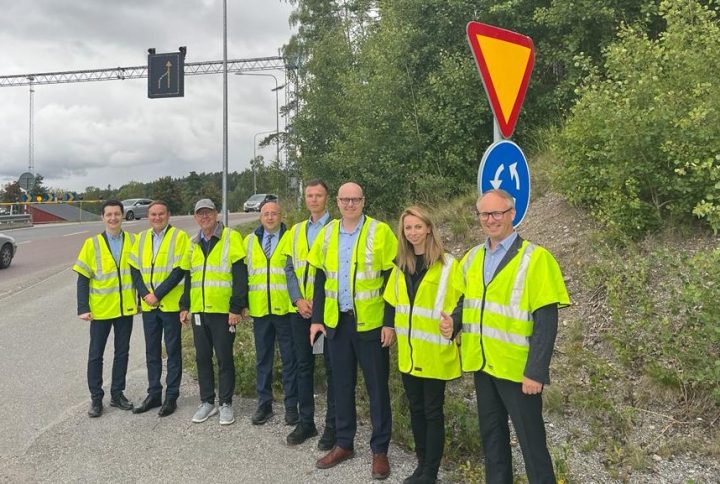
The first EU Road Safety Exchange study visit of the new phase of the project addressed Lithuania’s interest in the topic of Vision Zero, and focused on road infrastructure measures and safe urban mobility solutions.
The visit was organised together with the Swedish Transport Administration and supported by the experts at the City of Stockholm. The Lithuanian delegation was led by Vice-Minister Julius Skačkauskas and included representatives of the relevant national authorities
Over the course of two busy days, the members of the delegation participated in meetings with road safety experts from the Swedish Transport Administration and the City of Stockholm.
The first day included a bus tour with site visits of safe infrastructure measures, including the renowned 2+1 road, an innovative system of reversing lanes to manage heavy traffic and looking at the congestion tool station. The highlight of the second day was a guided walking tour in Stockholm showcasing urban traffic safety solutions with a focus on the safety of pedestrians and cyclists
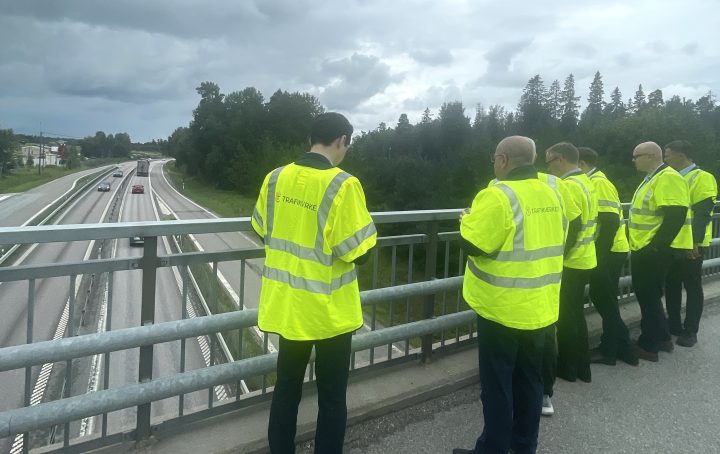
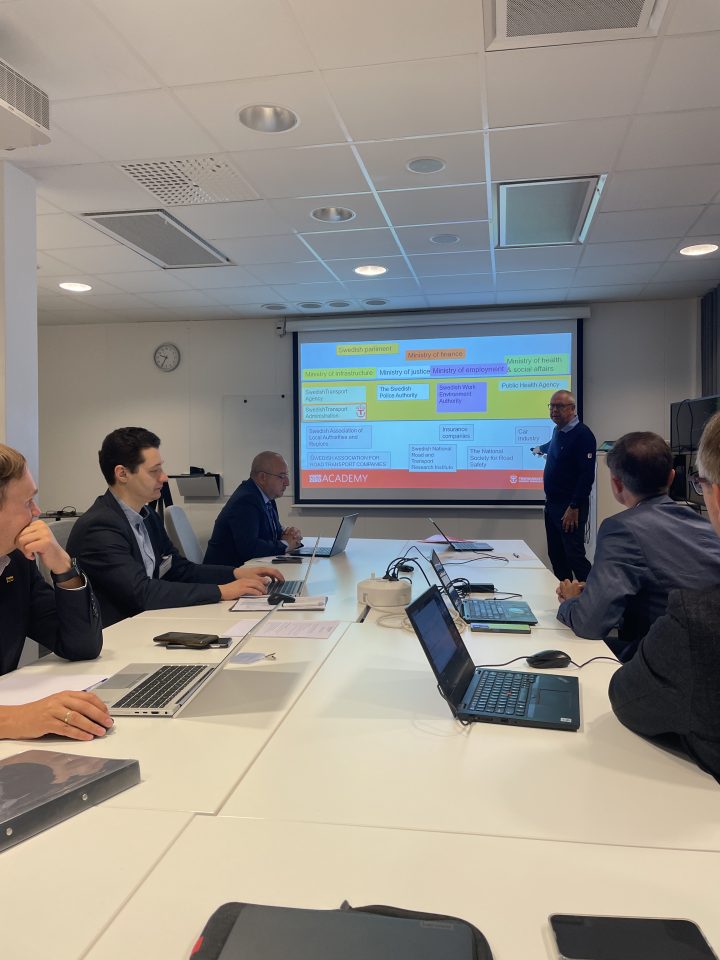
On the first day of the visit, the Lithuanian delegation, including representatives from the Ministry of Transport and Communications, the Transport Competence Agency, and the Lithuanian Road Administration, met with senior experts from the Swedish Transport Administration who shared presentations and engaged in discussions with their counterparts.
Topics included the Swedish adoption of the Vision Zero, in-depth explanations of the paradigm shift required for successful implementation of the Vision Zero principles, and various approaches to traffic safety. Experts explained the road management system in Sweden, and the introduction of a congestion tax system in Stockholm and Gothenburg.
In the afternoon, the group went on a bus tour to visit safe infrastructure measures around the city of Stockholm, with on-site explanations of various adopted solutions. This included a closer look at 2+1 roads, the system of reversing lanes, and an overview of congestion tax toll stations.
The second day focused on safety in urban areas and the group was hosted by the City of Stockholm, specifically experts in road safety and urban planning from the Transport Department. Swedish colleagues presented their approach to creating a more livable city, prioritising the safety and well-being of vulnerable road users, controlling traffic and vehicle speed, and making the city more attractive for pedestrians.
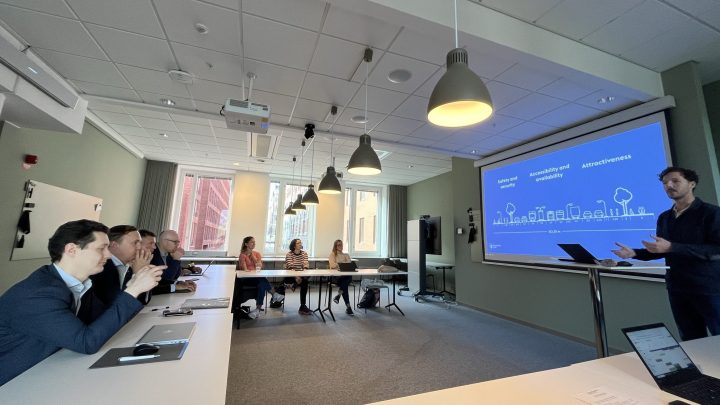
Presentations were then followed by a walking tour where the Lithuanian delegation had a close look at some of the road infrastructure solutions implemented within the urban areas in Stockholm, with explanations and examples of how these areas looked before the changes
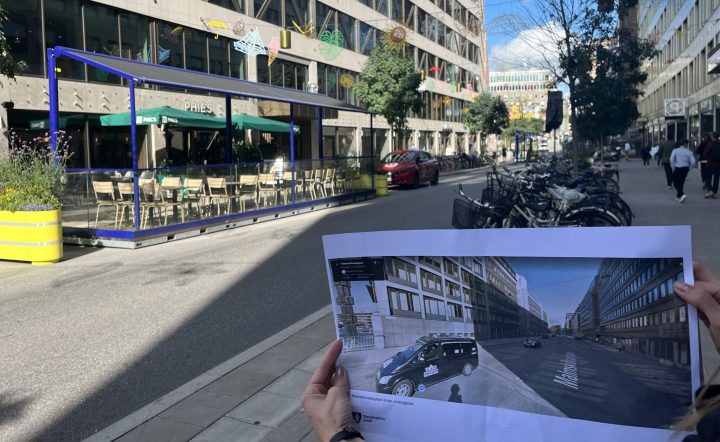
The Lithuanian delegation appreciated the experience and, together with their Swedish colleagues, were keen to further exchange ideas and measures to improve road safety. The EU Road Safety Exchange national workshop, which will be organised in Lithuania in 2024, will allow the experts from the two partner countries to continue and deepen the cooperation on the topics of interest.